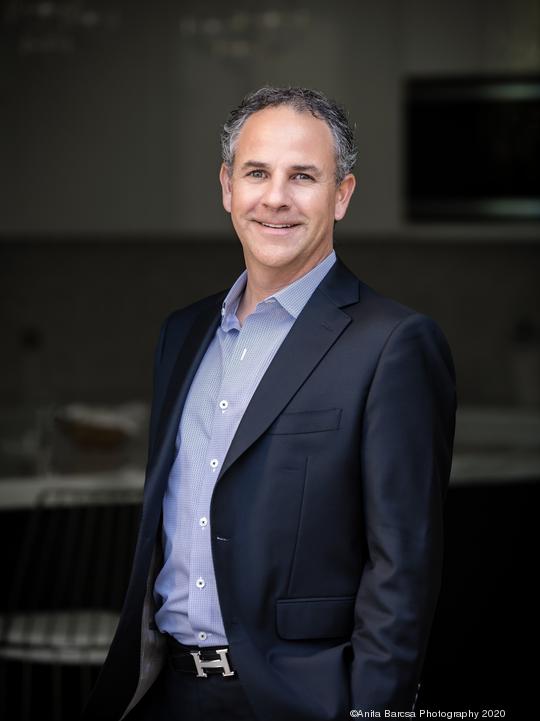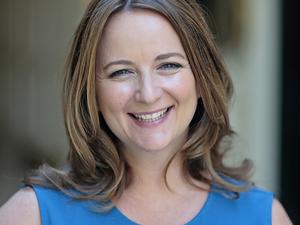
Before Uber, Airbnb and Poshmark, there was Peerflix, a Palo Alto-based DVD trading platform that let people lend out their personal movie collections.
Netflix had debuted as a public company a couple of years earlier, but its business model was capital intensive and required the company to buy and store enough DVDs to meet demand for its mail-order service.
Billy McNair saw another option: leverage the inventory already sitting in people's homes, create a platform to facilitate the exchanges and charge a small transaction fee instead of a monthly subscription. So in 2004, he founded Peerflix.
As things turned out, consumers weren't quite ready to open their homes, cars and closets to strangers. They also seemed to prefer paying a monthly fee to get unlimited DVDs from a single source rather than having to go to the Post Office themselves to lend out movies to other people.
Peerflix tried to pivot and adapt, but nothing really worked. McNair also saw concerning signals emerging in the broader economy. So a few years after launching, he and the rest of the team realized they only had two options: either shut down the company or get acquired.
"We weren't going to shut down the next month, but we also realized that we had probably less than 12 months of capital remaining with a very low likelihood of being able to raise additional capital," McNair told me. "I think we all recognized that [getting acquired] was a longshot at the outset but some chance was better than no chance."
By 2008, they had found a buyer: LiveUniverse, an entertainment company started by Brad Greenspan (who is variously described in media reports as a founder or early investor of MySpace). It was an all-stock deal, McNair said, but the details were never publicly disclosed.
McNair's experience more than a decade ago could provide lessons to today's entrepreneurs as they face warning signs in the startup sphere and broader economy.
"Looking back on it as an entrepreneur, I think you definitely want to make the hard decisions and make them quickly," McNair said. "You always feel like, we can get this worked out, we can fix the business model, we can figure it out, and you always are reluctant to lay off employees or downsize. It's critical that you don't bury your head in the sand and when you see the markets start to shift, that you get out in front of it and make those decisions early on in the process."
Layoffs at startups have been piling up around the Bay Area this year, and investors have been warning their portfolio companies to trim costs and buckle up for tough economic conditions. Public offerings are also off the table for many companies right now while they wait for more favorable market conditions.
So barring shutting down, that leaves most startups with a few options: wait and raise more capital if you can, pursue an acquisition or explore other types of mergers.
"You should be thinking about, despite the market, how am I building this company for the long term because this, too, shall pass, and how can you set yourself up to come out better when markets pick up? If it means having to wait a bit to go public or dilute a little bit more in the short term to get to the right place for a long term win, you don't necessarily want a backup exit plan if you're mission driven,” Pegah Ebrahimi told me.

Ebrahimi held executive roles overseeing investment banking at Morgan Stanley for more than 15 years, and earlier this year she co-founded a new venture firm based in San Francisco called Founder's Point of View.
"I'm also seeing a lot more private-to-private transactions where combining forces makes both sides better, whether it's cash on the balance for one and together they can strengthen each other or maybe it's a joint go-to-market and the unit economics look better together," Ebrahimi said.
The Bay Area saw a record number of acquisitions, buyouts and IPOs in 2021 but that pace has slowed down this year, according to new PitchBook data.
Only 116 local companies were acquired in the first half of 2022, less than half of all the deals that closed in 2021. Buyouts are pacing at around one-third as many deals as last year, and there have been only 15 public listings so far this year compared to 84 last year.
The value of deals has also declined. More than 330 Bay Area companies were acquired for $34.3 billion last year, according to the PitchBook data, and 2022 is on pace to reach less than half of that this year; the total value of acquisitions was only $7.3 billion through the end of June.
Construction startup Fieldwire was acquired last year by European equipment manufacturer Hilti after declining other offers for several years.
The San Francisco-based company develops collaboration software for construction projects, and co-founder and CEO Yves Frinault saw a strategic partnership that would give the company access to a much wider customer base when Hilti approached him about acquiring the company. The deal closed for around $300 million at the end of 2021.
Fieldwire hadn't been actively looking for a buyer, but ultimately Frinault decided it was the right deal at the right time.
"If you have something concrete that is good, I would consider it very seriously. I don't think anyone's going to get a surprise offer in the next year or two," Frinault told me. "If you don't have a buyer lined up and you have the money to survive for a year or two, I would start working on that very, very seriously."
One thing to keep in mind, though, is the impact of having a highly distributed workforce.
Some buyers looking to acquire companies for their talent, often referred to as an "acquihire," still prefer scooping up local teams, particularly in the Bay Area, said Roy Bahat, founding partner of Bloomberg LP's venture arm, Bloomberg Beta. The firm was an investor in Fieldwire.
"Companies looking to buy startups are figuring out what their strategy is about how much they care about people being local, if at all, and startups tend to be more distributed now, too, so there's a little bit of an awkward dance of, is your strategy for how you work in a distributed way a match for ours," Bahat said, "and ironically, what I'm finding is that there continues to be a premium of interest for people who are all in one place."






